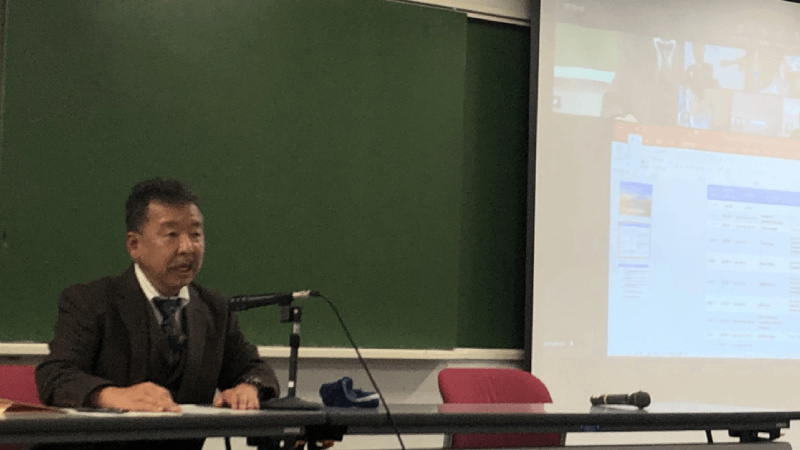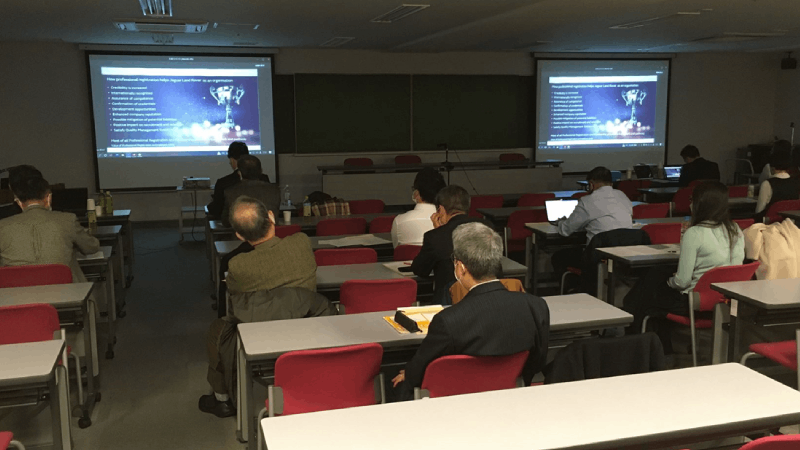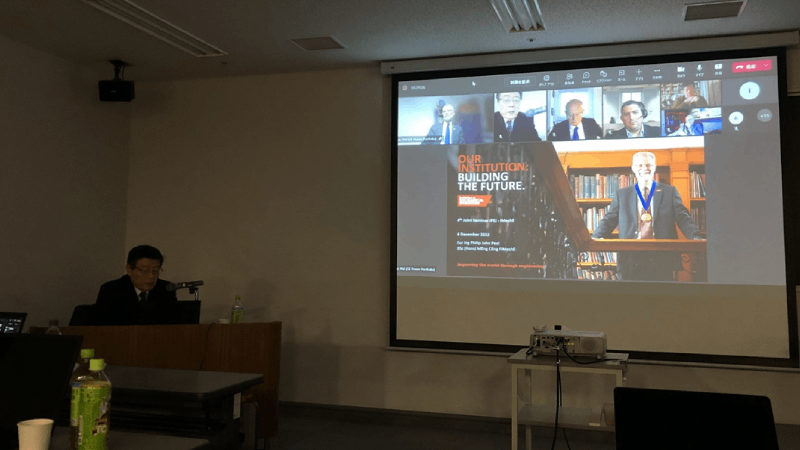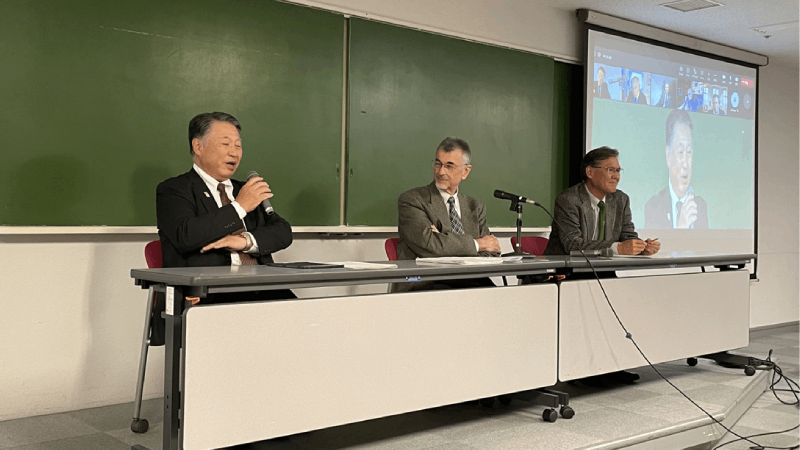The New series examines UK’s and Japan’s different approaches to development and registration of professional engineers, with a view to possibly bringing the two systems closer together. This, the first seminar in the series, focuses entirely on UK’s system, as seen through the lens of IMechE.
The Japan Panel of IMechE held the fourth joint event with the Institution of Professional Engineers Japan (IPEJ). The joint seminar was held in Tokyo on 6 December 2022 and marked a new stage in collaborative ventures between the two institutions.
The two institutions have been considering options for a follow-on to the previous series of three successful Climate-themed joint seminars which had attracted much attention in Japan’s engineering community. Under the guidance of the Japan Federation of Engineering Societies (JFES), IPEJ and IMechE started considering ways to tackle the issue of the ‘making’ of professional engineers, and in particular the differences between Japan’s and the UK’s approaches. JFES, under Dr Kishimoto’s leadership suggested that the long history of the UK system, which had brought about the status and qualification of the ‘Chartered Engineer’, had much to recommend it, especially as a system well-suited to producing engineers who can apply their professional competences in a globally connected world, and particularly by comparison with the Japanese system.
In that light, it was suggested that the first step should be to examine the UK system in the first of the new series of seminars, under the theme “Global Engineers: How to become an internationally competent professional engineer- the CEng way”.
The seminar followed the ‘hybrid’ formula, with the venue in Tokyo being the main centre, but with attendees being offered the option of online attendance. As the seminar was entirely focused on the UK system, all four speakers were UK based and made their presentations online.

In his opening speech, Mr Sasaki, Chair International Committee, IPEJ, emphasised some of the basic differences between the UK and Japan societies and systems of educating and accrediting engineers. He singled out some areas where the UK system might offer the Japanese institutions something to think about: the concept of competency, which can be described as being at an early stage of development in Japan, and engineers’ development throughout their careers. He also reminded us of the lack of registration of technologists or technicians in the Japan system. Mr Sasaki closed by saying it was important to establish the most appropriate system for Japan after studying how the UK system might help that endeavour.
In the first presentation, Mr Tom Owen, Senior Business Development Manager – International, IMechE, offered a sweeping look at the history of the UK system of recognition and registration of engineers, with particular emphasis on the history of development of the Engineering Council. The presentation was full of pertinent information, going back to the foundation of the Corps of Engineers in 1717, and taking in all the developments that ended up with the Royal Charter that established the Engineering Council in 1981. The presentation brought out one particular aspect of the UK system which was of interest in the context of the seminar, and that was the nature of the ‘voluntary’ UK system, with a unified register and self regulation, which differs from Japan’s system, as well as many other countries’, which use the ‘licensing’ approach.
The second presentation was given by Mr Peter Flinn, immediate past president IMechE. Mr Flinn chose the platform of the global challenge of the ‘net zero objective’ to highlight the role of the engineer as a globally aware and capable professional, responding to ‘the needs of both society and business’, solving complex challenges. Mr Flinn presented some hard-hitting facts and data in the context of net zero, and asked some difficult questions in the context of the general role of engineers in society, such as “could engineers perhaps be more vocal?”

This was followed by the presentation of Mr Simon Wood, Senior Capability Specialist-Professional Development, Jaguar Land Rover. Mr Wood, as representative of the industry, explained in a most unambiguous way why a company like Jaguar Land Rover supports the UK system for Engineers’ professional registration at all levels, ad how that helps the organisation. He also clearly outlined the benefits to engineers and technicians of the competence approach to professional registration.

Last but not least, came the presentation of Mr Phil Peel, President, IMechE. Mr Peel projected IMechE’s own culture, mission and strategy into the issues being discussed. After all, in the context of the seminar, IMechE was representing the whole UK engineering community, as the leading institution with high level connections in Japan. Mr Peel showed how “improving the world through engineering” goes to the heart of the question of why UK’s system of registering professional engineers under the aegis of the Engineering Council, also addresses the question of how to produce engineers with cross-border competences, capable of operating in a globally linked world. Mr Peel emphasized the ‘4 core values’ (inclusion, Integrity, Innovation and Impact) and how they are interwoven into IMechE’s future strategy, providing foundations for professional engineers to look out to the world. Finally Mr Peel showed his support and appreciation of IMechE’s fruitful partnership with IPEJ and wished it well.

The four presentations were followed by a 40 minute ‘discussion panel’. The panel was made up of the four presenters, Mr Sakai, former Chair, International Committee, IPEJ, Mr Ebina, Hon Chair IMechE Japan Panel, and was hosted by Rob Domloge, Chair, IMechE Japan Panel. The discussions ranged from points relating to the presentations, to questions from the floor and online attendees.
Closing remarks were given by Rob Domloge who thanked the presenters for the interesting and valuable information they presented, and members of both IPEJ and IMechE for making the seminar possible by their hard work. He closed by suggesting that the seminar is very much a message from the UK professional engineers to their counterparts in Japan, and the beginning of a process of exchanging ‘messages’, both ways, which will continue in events to come.